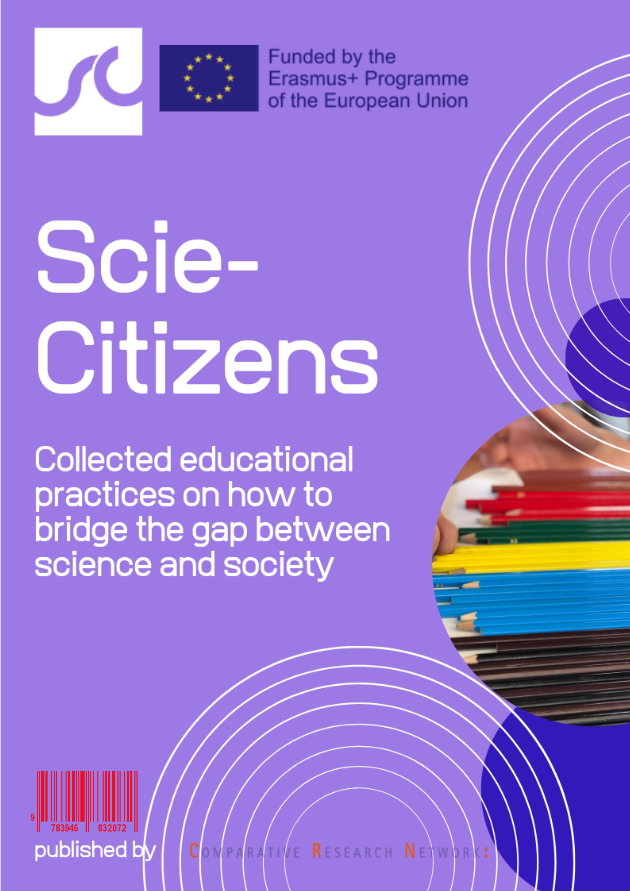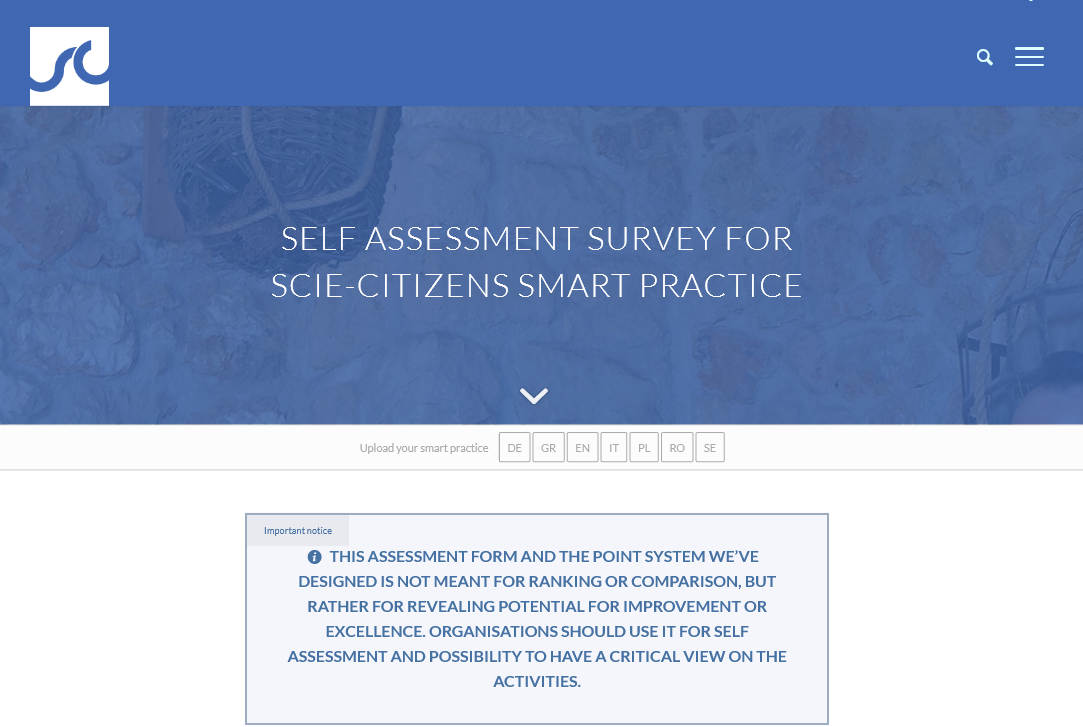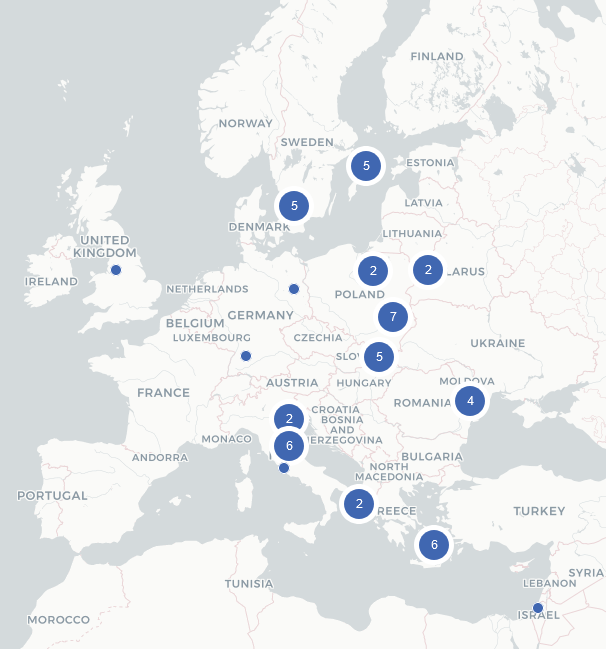We empower people from all walks of life to engage and perform in high end science. Max Kushnier at theScieCitizens Meeting in Iasi, 2019
Scie-Citizens believes in the power of participation in education. Thus, thhe mission of Scie-Citizens is to advance citizen science through knowledge sharing, collaboration, capacity building, and advocacy. The project encouraged citizens participation science by facilitating a community that shares practices, knowledge, and tools to bring recognition to the value and impact of citizen science.
The emerging message from the partnerhship is, first of all, that science has to be accessible by the society. The partners committed to looking for open processes working as bridges, where both scientists and citizens are involved. For Scie-Citizens, science is a multidisciplinary power – making positive changes possible. Its moved by curiosity of understanding complex systems: human and the contexts where we?re living. It?s based on structured methods and a specific common language, not always understandable and, often, intimidating to the people outside of the scientific bubble.
Therefore a smart practice combines different elements to create something new for a specific context with a specific need – it should have the following features: be Open Source, accessible, circular use, process based, building new relations and based on scientists-citizens collaboration. In creating an assessment tool, based on common reviewed indicators we identified 82 practices and published a representative selection in an ebook.
The role especially of adult education in citizens science had be defined to four areas:
1.Dialogue between science and society
2. Co-creation of new knowledge
3. Creating positive Change
4. support of the society to understand needs and formulate challenges
The 7 partners from Germany (CRN), Italy (School Raising), Romania (CRCE), Greece (EA), Sweden
(Changemaker) and Poland (Midicentrum, SAN) addressed directly trainer and teacher in all educational sectors and provided them with a tool-box full of practices ready to be included in their everyday teaching, helping to bridge the gap between science and society.
By providing a reviewed dataset of tested practices, we offered both stakeholders and educators an overview of existing training tools and methods helping to overcome barriers to participation. ScieCitizens believe that instead of reinventing methods, it is more productive to evaluate existing tools in all sectors, focusing on cross-sectoral cooperation.
The consortium itself consisted out of partners working in non-formal adult (CRN, CRCE), school education (EA, and School Raising), non-formal education in a public body (Midicentrum) and higher/vocational education (SAN).
Additional external stakeholders contributed further to the review of the practices (e.g. High Schools in Poland, Adult and Vocational training provider in Germany, Romania, Italy and Poland,), higher education instiutions in Finland and Poland, SMEs and Policy Maker (Berliner Senatsverwaltung, City of Suwalki, City of Gothenburg).
The project thus had direct horizontal impact and contributed to an open and innovative education.
ScieCitizens contributed to the growth of a citizen science network with a commitment to future collaborations. The partners gathered inspirations by project itself, the smart practices and ideas on citizen science affecting the worldview and offering knowledge on opportunities to implement new initiatives and collaborations.
The partner organisations got familiar with a wealth of smart practices that are incorporated into our science citizens program and stareted to transfer and implement smart practices in internal programs.
Finally the organisations and participants got inspired and enriched by the work of the others and their involved staff acquired new skills and knowledge by participating in the workshops developed during the project. The sustainable use of the results is crucial. Collecting, reviewing and documenting the smart practices are considered as a first step. The methods might be the source for training modules on integrating research into the various sectors after the project ended. Since the results are relevant for all education sectors a good documentation is needed. Therefore, the practices are published centrally on a database on the project webpage.
The database islinked to all institution web pages of the partnership. The links ensure, that the results will be integrated in the all-day working structure of each partner. The practices has been published as a downloadable ebook and as printed booklet with specific ISBN. The publications have become available and downloadable through library catalogues, and as well the EPALE resource center, where they will be stored sustainable.











